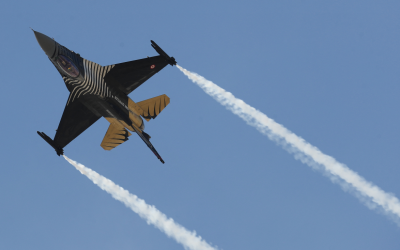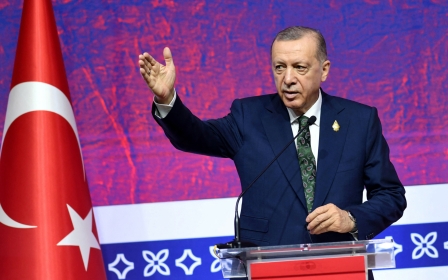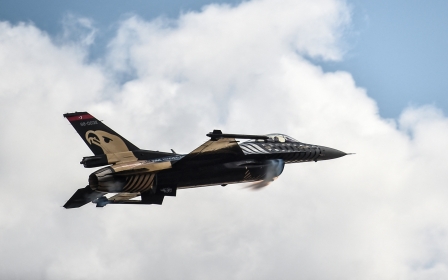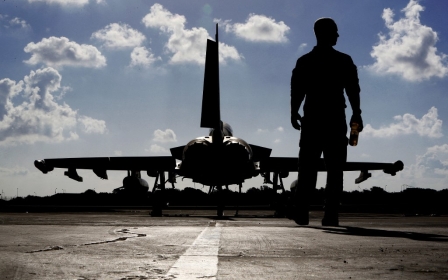Turkey's Cavusoglu expects US to approve F-16 sale
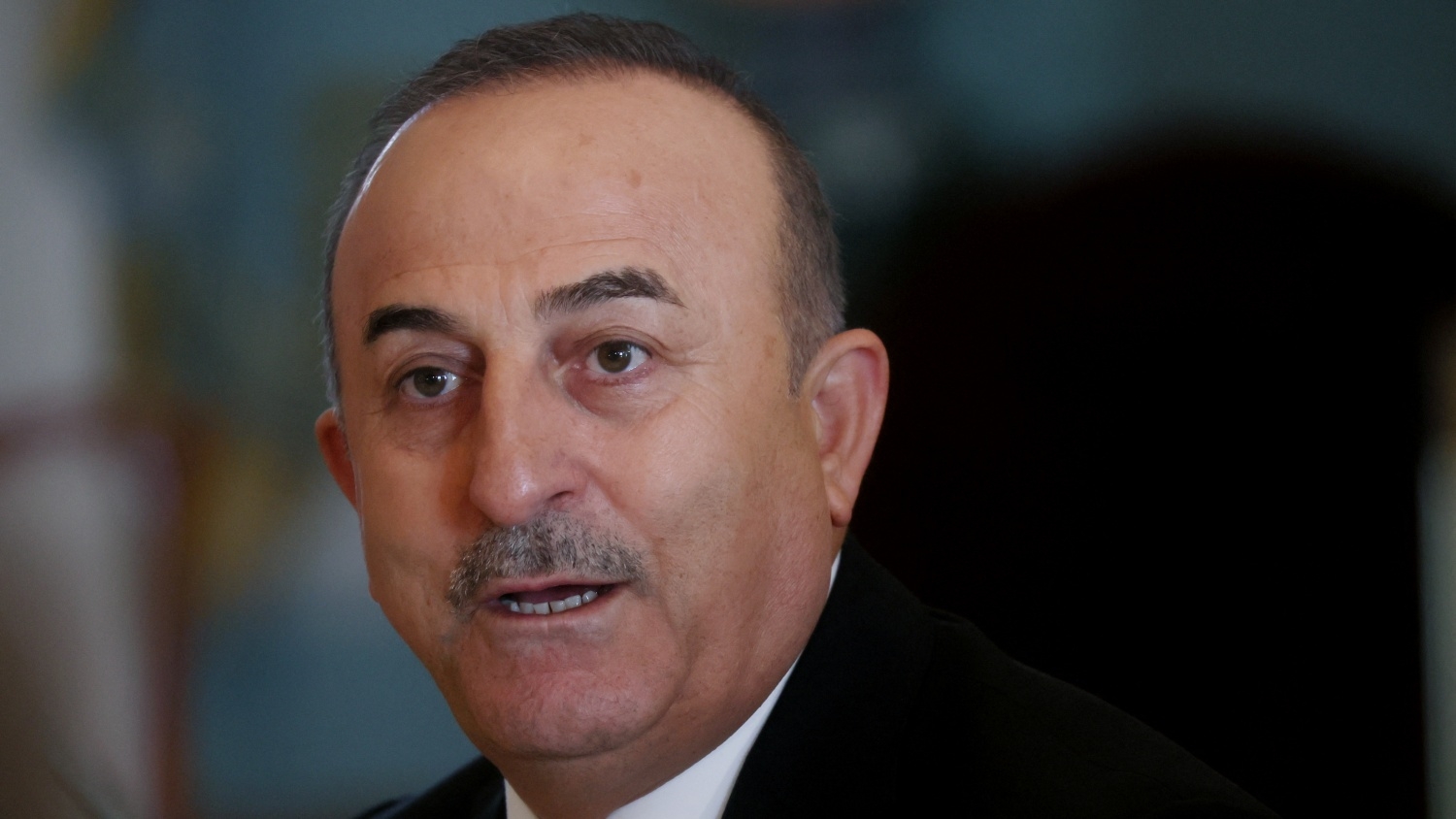
Turkish Foreign Minister Mevlut Cavusoglu said on Wednesday that he expects the US to approve a $20bn sale of F-16 fighter jets to Turkey, saying the potential deal is in line with the "joint strategic interests" of the two Nato allies.
"We expect the approval in line with our joint strategic interests," he said.
The remarks came during a meeting between US Secretary of State Antony Blinken and Cavusoglu, who is visiting Washington this week for the first time since the Biden administration took office almost two years ago.
Speaking before the meeting with Blinken, Cavusoglu said the F-16 deal was important not only for Turkey but for Nato and the US, appearing confident that it would go ahead.
Following the meeting, the Turkish foreign minister said that he invited Blinken to visit Turkey.
New MEE newsletter: Jerusalem Dispatch
Sign up to get the latest insights and analysis on Israel-Palestine, alongside Turkey Unpacked and other MEE newsletters
The Biden administration has expressed its support for the F-16 sale to Turkey, as it seeks to keep Nato unity in the face of Russia's invasion of Ukraine.
Last week, the State Department informally notified the committees overseeing arms sales in the US Senate and House of Representatives of its intention to proceed with the sale. However, a formal notification has yet to be delivered.
Congressional opposition
The sale to Turkey is larger than expected. If approved, Turkey would receive 40 new aircraft and kits to modernise 79 of its existing F-16 fleet, in addition to 900 air-to-air missiles and 800 bombs.
But the approval is likely to face opposition from Congress, and several top lawmakers have said recently they are against the deal.
"[Turkish President Tayyip] Erdogan's ... repeated attacks on our Syrian Kurdish allies, and continued cozying up to Russia - including delaying Sweden and Finland's NATO membership - remain serious causes for concern," Democrat Senator Chris Van Hollen said in a statement.
"As I’ve said before, for Turkey to receive the F-16s, we need assurances that these concerns will be addressed," he said.
The most notable opposition comes from Democratic Senator Bob Menendez, chairman of the Senate Foreign Relations Committee.
A senior administration official said Washington was unlikely to follow through with the sale unless Menendez reverses his opposition, a senior administration official told Reuters.
According to US officials, the arms sale is contingent upon Turkey agreeing to Sweden and Finland's accession to Nato. Turkey has held off on agreeing to their joining the alliance, over what it claims is their support for Kurdish militants, and Sweden said earlier this month it cannot fulfill all of Turkey's demands.
The two Nordic states applied for Nato membership last year, following Russia's invasion of Ukraine. But their bids need approval from all 30 Nato member states.
Turkey has raised objections, accusing the countries of harbouring groups it deems terrorists. It said Sweden, in particular, must first take a clearer stance against these groups, mainly Kurdish rebels and a group it blames for a 2016 coup attempt.
Erdogan said on Monday that the two countries had to deport or extradite up to 130 "terrorists" to Turkey before parliament would approve their requests to join Nato.
US-Turkey ties
Relations between the US and Turkey have been strained since Ankara acquired Russian missile defence systems in 2019.
Over the last year, the US has praised Turkey for some of its actions during the Ukraine war, including mediating talks on grain corridors, but there are also worries about Ankara's deepening relationship with Moscow.
Tensions between Turkey and fellow Nato ally, Greece, have also negatively impacted the sentiment in the US Congress towards Ankara.
In a pivotal change for the region, Athens, which at times has experienced cooler relations with Washington compared to Ankara, has seen ties to the US flourish. Meanwhile, Turkey’s ties with the US have eroded, in part, over Washington's concerns about President Recep Tayyip Erdogan’s policies in the Eastern Mediterranean, where Greece and Turkey have clashed over territorial and maritime issues.
Greece and Turkey are also both sensitive to changes in US policy in the region. Last month, Cavusoglu said the US was "disrupting their balance on Greece and Cyprus”.
And in September 2022, Erdogan said he would add to the 40,000 Turkish troops stationed in Northern Cyprus, after the US fully lifted its arms embargo on the ethnically divided island.
Middle East Eye delivers independent and unrivalled coverage and analysis of the Middle East, North Africa and beyond. To learn more about republishing this content and the associated fees, please fill out this form. More about MEE can be found here.


